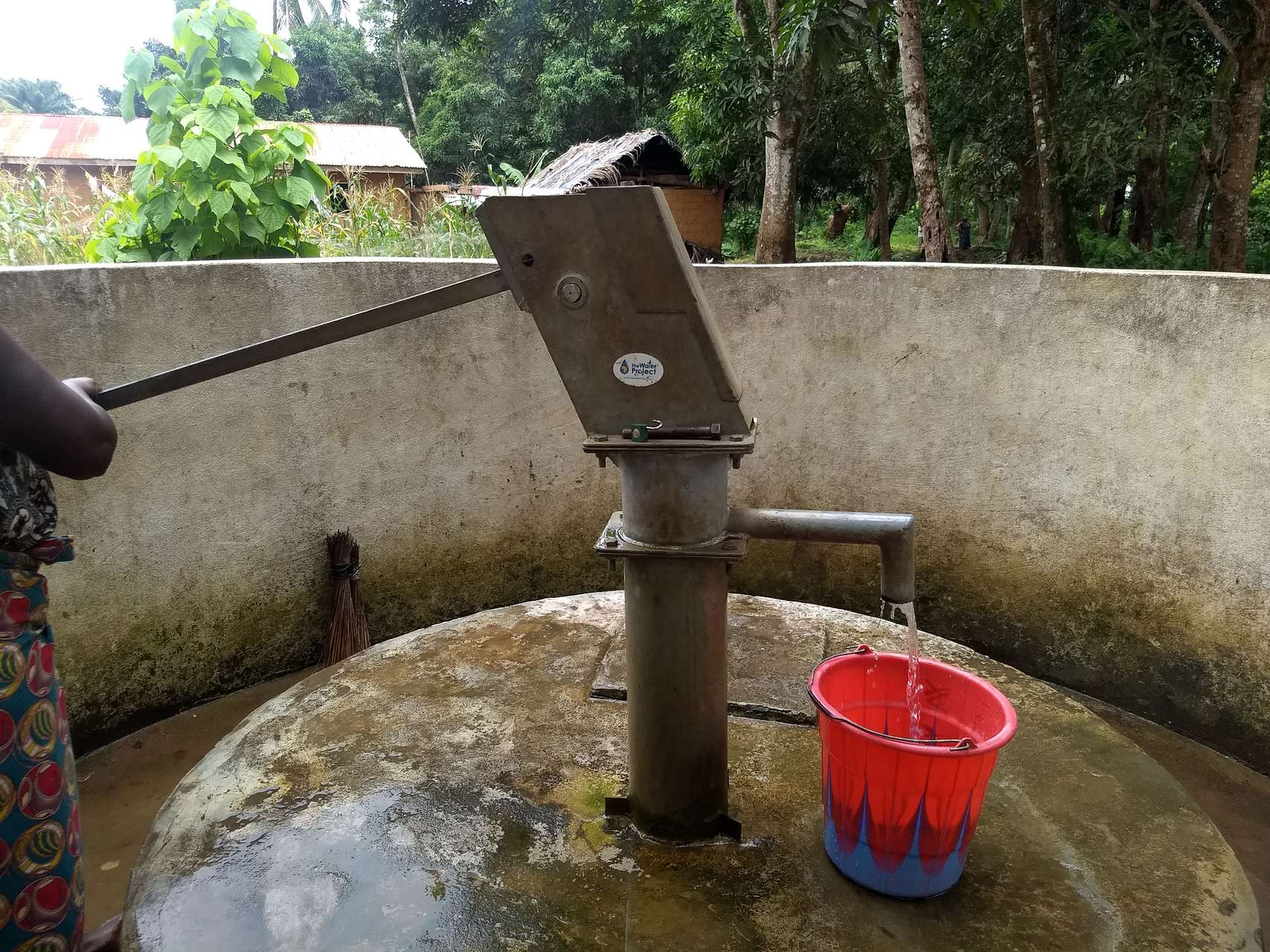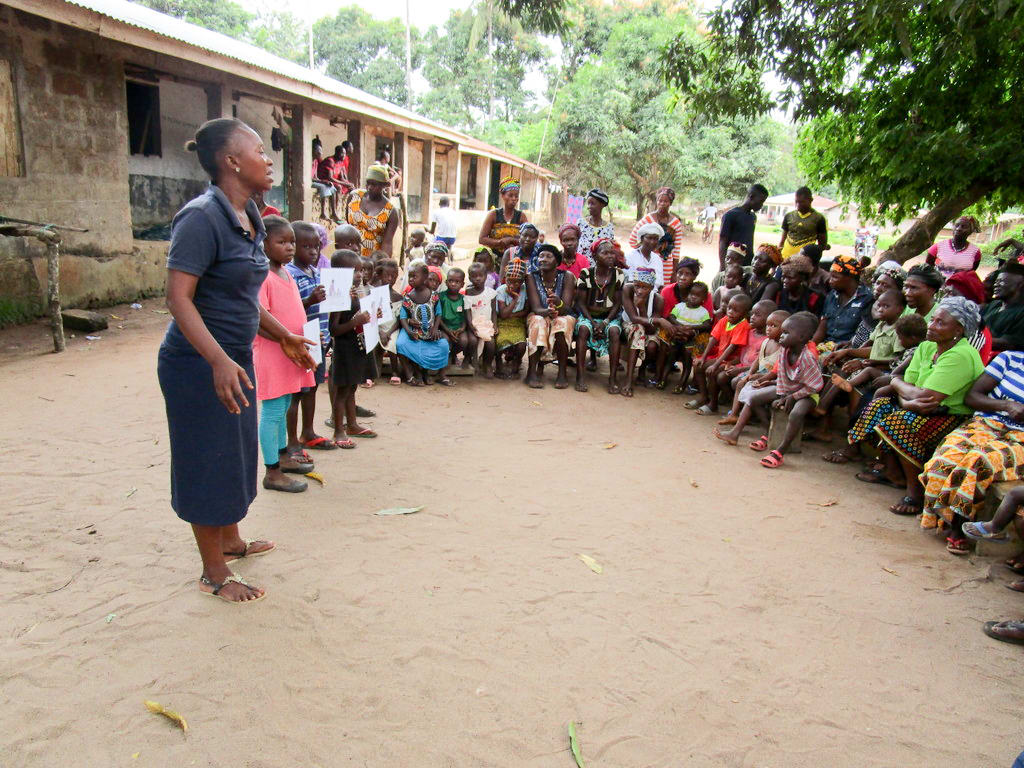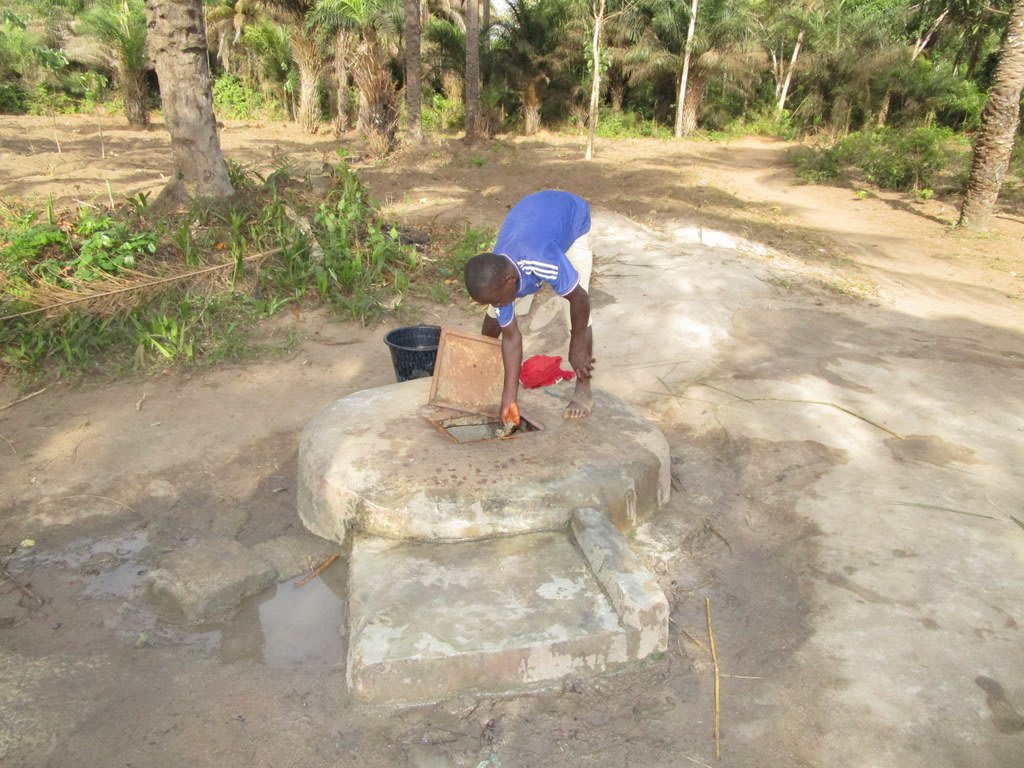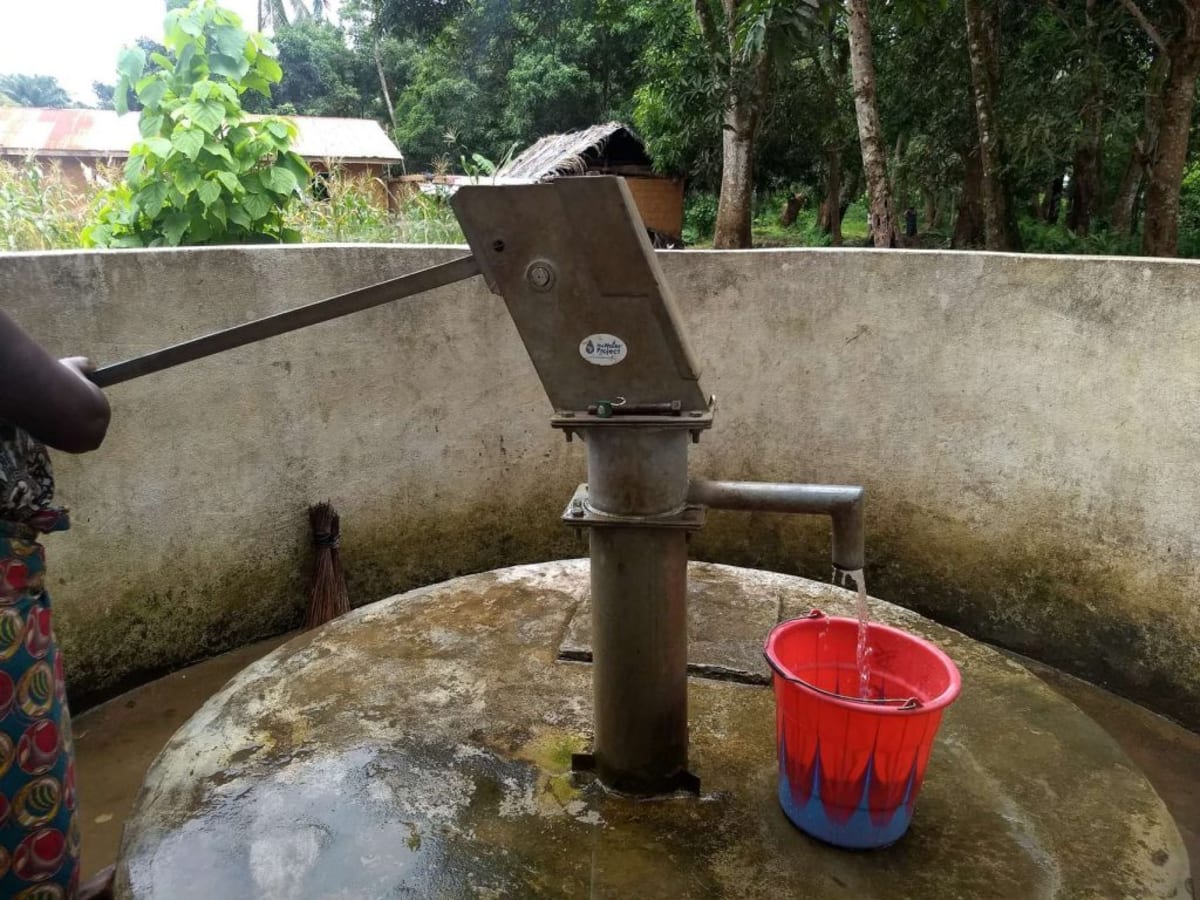Kintoki is a very rural village which is yet to experience the recent urbanization that is going on in some other communities. Vegetation sprawls untouched. It is perfectly quiet throughout the day as villagers spend time working on their farms. Most of the buildings here are made of locally produced mud blocks with cement plastering and are arranged in straight rows on opposites sides of the major roads.
All the people in Kintoki Village are very unified because they have one Muslim faith. There is a mosque in the center of the village that serves many purposes and all village activities take place here.
The idea of building a mosque originated with Pa Jawara in 1990. According to him, he thought of it overnight and brought it to the notice of other community elders in the morning. This idea was well-received by the entire community, and he immediately donated a plot of land where the mosque should be built.
They had no capital to construct even a brick structure at that time, so they constructed a small "bafa" from local materials. The congregation at that time was only nine people, comprising of the community elders. This mosque has since been rebuilt and renamed Masjid Arahaman. At least 80 community members visit this mosque regularly for prayers and teachings.
Water Situation
The mosque has a hand-dug well, but it went dry. The community has since abandoned the well.
So, all of the people in this part of Kitonki go to the swamp for their water since they have no other source. The swamp is more than one kilometer away, making it particularly hard for young children and the elderly to get the water they need. Here's they've dug a hole with a hatch, where a bucket and rope can be lowered for water.
The water levels get very low during the dry months, so community members have to dig other holes to find more water. They share this swamp area with wild animals, which is one of the many reasons this source is so dangerous.
People in this part of Kintoki Village filter their water so that they can reduce the floating particles. Without filtering, the water would be a milky color and would contain some clay and leaves.
But it's not the poor quality of water people complain most about, it's the fact they have to walk such a long distance back and forth. Limited trips do not provide the water needed to run a household properly. Children are in pain after carrying buckets of water over long distances and are tired after getting up so early before school to do so.
Beyond the distance, both young and old suffer from cholera, typhoid, and dysentery.
Sanitation Situation
Most of the compounds here are fenced in with their latrine facilities at the far end. Every household in this area has a latrine, and people keep their latrines clean. The floors were dry and a fifth of them had a little handwashing kettle in the corner. However, most pits were left open to flies coming and going. The mosque itself has no latrines, so people must return home if need be.
"Based on what you have said about hygiene so far, I can say that the factor that frustrates our hygiene effort is no availability of enough water. But we do clean our compounds, as you can see, and maintain our latrines to some extent," Pa Komrabai Jawara said.
"Just that for cleanliness to be complete, one needs plenty of water and that is actually what we lack in this community. So for now, our status is a little bad but if you people help us with this water well we shall try to improve on it."
What we can do:
Training
There will be hygiene and sanitation training sessions offered for three days in a row.
The hygiene and sanitation trainer decided it would be best to teach community members the importance of handwashing, building and using dish racks, and other sanitation facilities. Pictures will be used to teach the community how to discern between healthy and unhealthy hygiene and sanitation practices. They will applaud the community for full latrine coverage but will also teach them how to improve by keeping flies out of the pits.
These trainings will also result in a water user committee that manages and maintains the new well. They will enforce proper behavior and report to us whenever they need our help solving a serious problem, like a pump breakdown.
Well Rehabilitation
We want to work on the well located at the mosque (the one with an old pump pictured on this report). Our team has decided to do the hard work of drilling a borehole by hand in the bottom of this well, which will not only increase the water quantity but will ensure its quality, too. A new well pad will keep contaminants out, and a new India MkII stainless steel pump will provide easy and safe access to the clean water inside.
This community has been drinking dirty swamp water and suffering the consequences. With our rehabilitating this open well, Kitonki Community will be provided with plenty of safe, clean drinking water.
This project is a part of our shared program with Mariatu’s Hope. Our team is pleased to provide the reports for this project (edited for clarity) thanks to the hard work of our friends in Sierra Leone.

 Protected Dug Well
Protected Dug Well






























